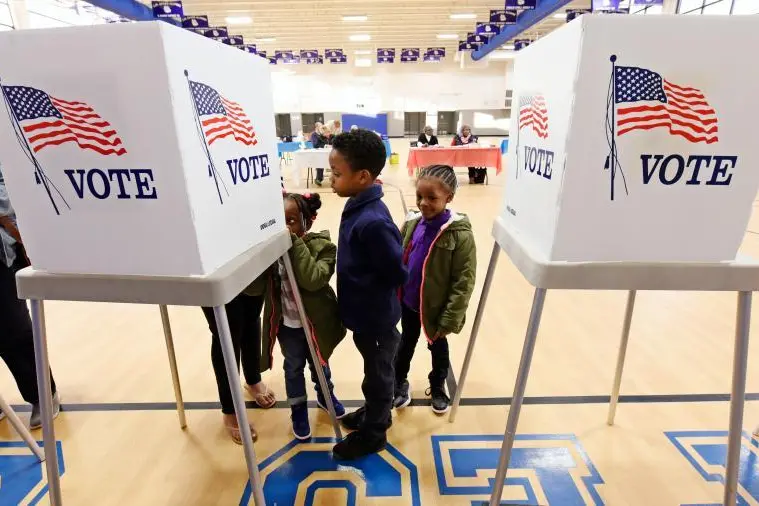PHOTO
There is no doubt that Beijing will attempt to take advantage of developments in US politics until and after the presidential election in November.
There are complex opportunities for China to conduct a wide range of activities against Washington and its allies. The US, meanwhile, will be putting up defensive walls, coordinating with allies and aiding them as a countermeasure to China’s typical interfering strategies.
US counterintelligence officials have found that foreign states are using “covert and overt influence measures” to sway the vote. They said that China does not want Donald Trump to be re-elected, while Russia wants to damage the chances of Democratic challenger Joe Biden. More generally, foreign powers are trying to sway voter preferences, change US policies, “increase discord” in the country and “undermine the American people’s confidence in our democratic process.”
The counterintelligence report stated that China “prefers that President Trump — whom Beijing sees as unpredictable — does not win re-election,” and has been “expanding its influence efforts.” However it added that it would be “difficult for our adversaries to interfere with or manipulate voting results at scale.”
The relationship between the US and China, the world’s largest economies, is confrontational in nature. It was already strained before the coronavirus outbreak as a result of Asian security issues, in particular China’s expansion of its maritime interests and threats to neighbors.
Two years ago, Trump began escalating a trade dispute with Beijing that has now deteriorated into retaliatory tariffs and become a trillion-dollar trade war. Meanwhile, the pandemic has caused an economic slowdown in the US that has the Trump campaign worried about his chances of re-election.
China knows that applying additional pressure on trade in the run-up to the election could hurt Trump’s chances, so it is no surprise that this is exactly what it is doing. Beijing is reported to have a history of interfering in US elections. Intelligence agencies concluded that Chinese hackers meddled in the 2016 presidential election and the 2018 midterms. Internet security experts said there are signs that hackers linked to China are engaged in attacks on US political targets ahead of this year’s poll.
While some other countries, including Russia and Iran, might also be identified as having an interest in undermining the election by creating strategic distractions and tactical challenges, carrying out cyberattacks and disinformation campaigns and, perhaps, engineering confrontations in international maritime waters, Beijing is challenging US to a greater extent than usual because of the pandemic.
China is emerging from the first wave of infections while much of the West continues to suffer. Beijing is using this to apply pressure through mechanisms such as aid programs, and in its negotiating tactics. The ultimate aim is to influence the US election so that the unpredictable Trump is defeated.
China denies US claims that it hacks American businesses, politicians or government agencies. “The US presidential election is an internal affair (and) we have no interest in interfering in it,” said Foreign Ministry spokesman Geng Shuang. This is, of course, a common response by Washington’s rivals during US election cycles.
Chinese leaders have long emphasized the importance of influencing foreign public opinion as part of their strategic doctrine. In 2006, President Hu Jintao said China must “strengthen the construction of foreign-related media and networks” that promote the country. He called for the Chinese to “innovate in foreign propaganda methods” and “strengthen external propaganda in a language that is easily understood and accepted” by the public in other countries. He also underlined the need for China to “do a good job with work in the Western mainstream media” to “increase trust and dispel doubts” about the nation’s rise. Such words, coupled with advanced information-warfare tools, help to augment well-planned campaigns that take advantage of online resources.
China’s aggressive posture toward the US during the upcoming election might require some uncomfortable decisions. Trump might sense an opportunity to boost his chances by turning up the heat on China or its interests just to goad Beijing. If so, China’s response will be critical.
- Dr. Theodore Karasik is a senior adviser to Gulf State Analytics in Washington, D.C. He is a former RAND Corporation senior political scientist who lived in the UAE for 10 years, focusing on security issues. Twitter: @tkarasik
Copyright: Arab News © 2020 All rights reserved. Provided by SyndiGate Media Inc. (Syndigate.info).





















